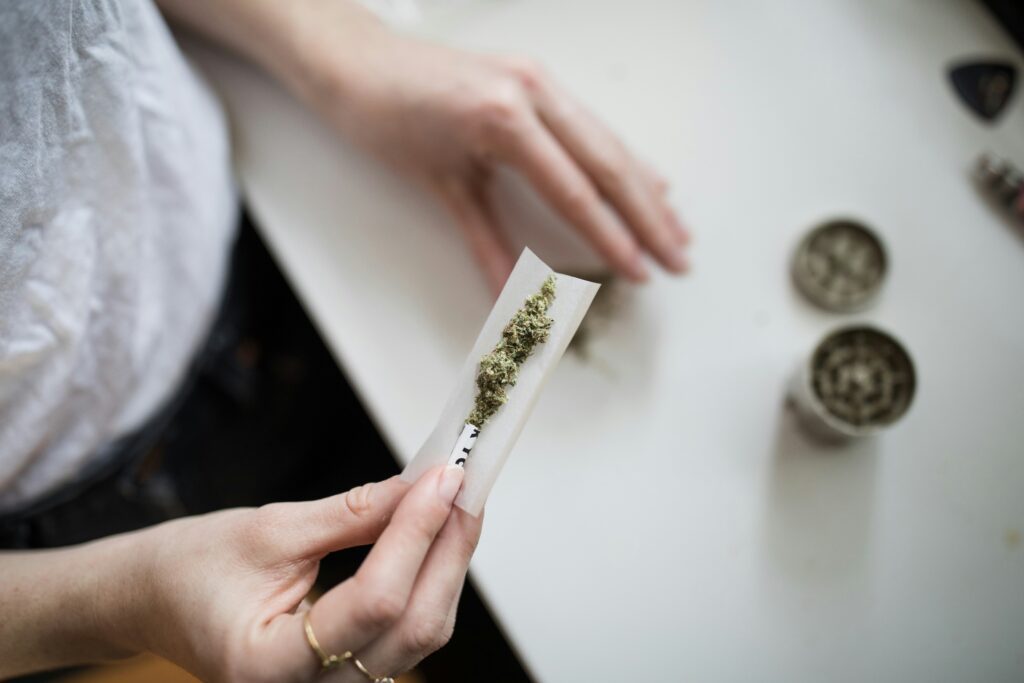Rules for Consuming Cannabis in Philadelphia, PA

Can You Consume Marijuana in Philadelphia?
Quick Summary of Rules for Consuming Cannabis in Philadelphia, PA
Consumption of marijuana in public places is prohibited. Even with decriminalization, using marijuana openly can result in fines or other penalties. Medical marijuana patients are permitted to consume their medication but must do so in private spaces and adhere to state guidelines, which prohibit smoking the plant form; approved forms include pills, oils, topical forms, tinctures, and liquids.
With all of the rules for consuming cannabis in Philadelphia being said, if you walk around the city, you will undoubtedly notice the smell of marijuana being smoked and you may even see individuals smoking. Generally, the police will not bother you if you are smoking marijuana, but you should still be aware of your surroundings.
Understanding Cannabis Consumption: An Overview
Cannabis, commonly known as marijuana, has been used for thousands of years for a variety of purposes. From recreational use to medicinal applications, cannabis consumption has become a widespread practice across the globe. Whether smoked, vaporized, eaten, or applied topically, cannabis offers a range of effects that vary depending on how it is consumed. This article explores what cannabis consumption is, its methods, and its effects on the body.
What Is Cannabis?
Cannabis is a plant that contains over 100 chemical compounds known as cannabinoids. The two most well-known cannabinoids are tetrahydrocannabinol (THC), which is responsible for the psychoactive effects of cannabis, and cannabidiol (CBD), which is non-psychoactive and has gained popularity for its potential therapeutic benefits. Cannabis also contains terpenes, aromatic compounds that contribute to its flavor and aroma, and are thought to play a role in its overall effects.
Cannabis consumption refers to the various ways people ingest or use cannabis to experience its effects. These effects can vary based on the method of consumption, the strain of cannabis, the cannabinoid profile, and the user’s tolerance.
Methods of Consumption
- Smoking Smoking cannabis is one of the most common methods of consumption. It involves inhaling the smoke produced by burning the dried flowers of the cannabis plant. This method delivers cannabinoids into the bloodstream almost immediately, producing rapid effects. Smoking can be done using joints (hand-rolled cigarettes), pipes, or bongs. While smoking provides quick onset and intense effects, it can be harsh on the lungs due to the inhalation of combusted plant material.
- Vaporizing Vaporizing cannabis involves heating it to a temperature just below combustion, allowing cannabinoids to evaporate without producing harmful smoke. Vaporizers come in various forms, from handheld devices to desktop models. Vaporizing is considered a healthier alternative to smoking because it reduces the inhalation of harmful toxins. It also produces a more potent and flavorful experience as it preserves the terpenes and cannabinoids better than smoking.
- Edibles Edible cannabis products have become increasingly popular, ranging from gummies and chocolates to baked goods and beverages. When cannabis is consumed in edible form, it is metabolized by the liver, which converts THC into a more potent compound called 11-hydroxy-THC. This process results in a slower onset of effects, usually taking anywhere from 30 minutes to two hours. However, the effects can last much longer compared to smoking or vaping, often lasting between four to six hours. Edibles offer a discreet and convenient way to consume cannabis, but they can also lead to overconsumption if not dosed carefully, as the delayed onset may cause individuals to ingest more than intended.
- Tinctures Tinctures are alcohol-based cannabis extracts that are typically consumed sublingually (under the tongue). This method allows for fast absorption into the bloodstream, producing effects within 15 to 30 minutes. Tinctures offer precise dosing, making it easier for users to control the amount of cannabis consumed. They can also be added to food or beverages.
- Topicals Topicals refer to cannabis-infused creams, lotions, or balms applied directly to the skin. These products are designed to target localized pain, inflammation, or skin conditions without causing any psychoactive effects. Because cannabinoids in topicals don’t enter the bloodstream, they offer a non-intoxicating way to experience the therapeutic benefits of cannabis.
- Concentrates Cannabis concentrates, such as shatter, wax, and live resin, are highly potent forms of cannabis that contain concentrated levels of THC and other cannabinoids. These products can be smoked, vaporized, or used in cooking. Due to their potency, concentrates require careful dosing, as they can produce stronger effects than traditional cannabis flowers.
Effects of Cannabis Consumption
The effects of cannabis vary depending on the strain, the consumption method, and individual factors like tolerance and body chemistry. Generally, cannabis can induce feelings of relaxation, euphoria, and altered sensory perception. THC, the primary psychoactive compound, is responsible for these effects, which may include:
- Euphoria: A sense of happiness or elation.
- Relaxation: Physical and mental relaxation, often accompanied by a calming effect.
- Altered Perception of Time: Many users report feeling like time is passing more slowly.
- Increased Appetite: Often referred to as the “munchies,” cannabis can increase cravings for food.
- Dry Mouth and Red Eyes: Common side effects of THC consumption.
In contrast, CBD is typically associated with more subtle effects, such as stress relief, pain management, and anti-inflammatory properties, without inducing intoxication.
Considerations and Risks
While cannabis is widely regarded as safe for most users, it is not without risks. Overconsumption can lead to unpleasant experiences, particularly with edibles or concentrates. Cannabis use can also impair short-term memory, coordination, and reaction time, which may affect driving or operating heavy machinery. Furthermore, while cannabis has many potential medicinal benefits, it can interact with other medications, so consulting a healthcare provider before using cannabis for therapeutic purposes is advised.




